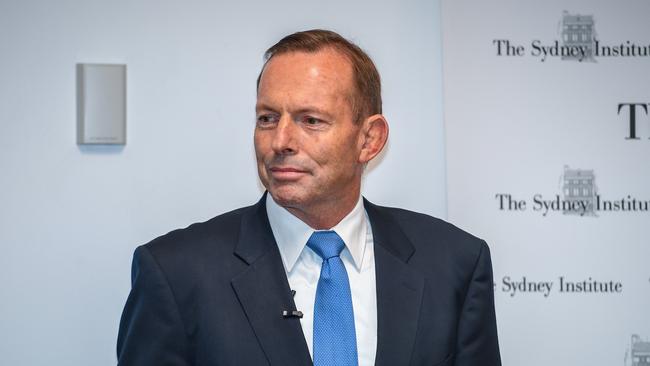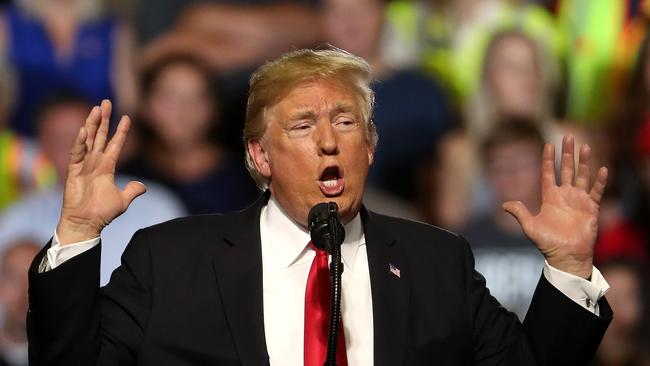Why risk our future for pointless emission targets?
WITH abundant natural resources, we should have cheap energy, but we’ve junked our standard of living for emissions that do “virtually nothing” to cool the planet, writes Peta Credlin.
Rendezview
Don't miss out on the headlines from Rendezview. Followed categories will be added to My News.
IN February last year the Chief Scientist told the Senate that eliminating Australia’s emissions would do “virtually nothing” to change the climate.
That’s of course because we represent just 1.3 per cent of global emissions. But you wouldn’t know it by the way we are turning our standard of living upside down to meet Paris targets that many of the big emitters have long junked.
China produces 27 per cent of global emissions and they’re not making any reductions at all — it’s business as usual. Same for India at 7 per cent. The US, as we know, are no longer part of Paris after President Donald Trump won an election promising to pull out, so there goes any reduction in their 15 per cent contribution.
We might as well get rid of our trade department because any effort they’re putting in to make our businesses globally competitive is blown away by the madness of saddling local companies with energy costs that mean they’ll never be able to fairly compete. Until now cheap and reliable power was one of our advantages, given our cost of labour is high and we’re a long way from most of our markets.
But now, with Paris, we’re making it all so much harder and you’ve got to ask, why bother? Why make electricity more expensive when nothing we do to reduce our emissions will make a difference? Why inflict harm on ourselves when the effort is futile?
The reason trotted out by Turnbull government ministers is that we’re doing this all because “that’s what we agreed at Paris”. But let me tell you the background they’re not telling you and how we set Australia’s target to reduce emissions by 26 to 28 per cent. I know, because I was there. And the dates are very important because a lot of these decisions occurred in the middle of the leadership spill, from Tony Abbott to Malcolm Turnbull.

In August 2015, under then prime minister Abbott, the Coalition agreed to take a target to the Paris conference to reduce our emissions by 26-28 per cent because there was official advice that this could be achieved without any policy change or big new costs. After all, Abbott had just won a landslide election promising to scrap the carbon tax and had earlier won the Liberal leadership opposing an emissions trading scheme.
In the foreign affairs documents at this time, Abbott even ensured important caveats were written in, to the effect that if circumstances materially changed (such as a country pulling out, or others not doing what they promised), he reserved the right to change Australia’s position.
By September, Turnbull was Prime Minister. And it was Julie Bishop who attended the Paris conference, which began in late November that year, months after Abbott was removed. It was only in time that we learned that China and India wouldn’t agree to any emissions cuts at all and that even our current climate policies are causing price rises and blackouts that the experts said would never happen.
As well, Trump has pulled America out, saying that Paris was hurting consumers, costing jobs and destroying local industries. If any of this had been known then, the Abbott government would never have agreed to Paris.

And for those like Energy Minister Josh Frydenberg, who want to plead “but we’ve signed it now, it’s too late”, since when is Australia expected to keep doing something when the reasons for doing it have disappeared? Even though Trump didn’t win until some 12 months after the Paris conference, I’ve no doubt Abbott would have used the caveats he included to protect our interests. Instead, the day after Trump’s win, Turnbull rushed to ratify the Paris Agreement, knowing the US would pull out.
The rewriting of history on this issue is extraordinary. But more terrifying is the way that the Coalition seems more concerned with keeping faith with foreign diplomats than the Australian people.
With the world’s most abundant sources of coal, gas and uranium, we should be revelling in the world cheapest energy prices, not the highest. We should have secure supply, not blackouts. Our heavy industry should be growing jobs on the back of this windfall from Mother Nature.
Instead we’re shedding jobs to Asia, which is growing its economies by burning our coal. Our governments, state and federal, claim that green energy is the future but they’re only making ends meet with record tax revenues from record coal and gas exports. It would be worthy of a Monty Python skit if it wasn’t our national interest at stake and our grandchildren’s futures.
Kevin Rudd’s Carbon Pollution Reduction Scheme, Labor’s Emissions Trading Scheme, Julie Gillard’s carbon tax and now Malcolm Turnbull’s National Energy Guarantee. They’re all basically the same, winding back our energy advantage to meet arbitrary emissions targets that most of the big emitters are ignoring.
When 26 per cent of our 1.3 per cent is four-fifths of bugger-all and, in the words of the Chief Scientist, will do “virtually nothing” to keep the planet cool, why are we junking our standard of living and putting at risk Australia’s future?
It’s time to get real.
***
SPENDING money might buy you time but it rarely fixes a fundamental problem.
The issue with the GST is not just that Western Australia was being ripped off but that the distribution formula rewards lazy state governments and punishes ones that try to reform.
As so often with this government, Scott Morrison’s GST “plan” doesn’t reform the system, it just buys off the complainants. He isn’t fixing GST distribution by cutting the cake more fairly; he’s just hoping an extra billion a year in borrowed money will buy the silence of state premiers ahead of the next election.
He’s robbing Peter to pay Paul with money from the same taxpayers.
No wonder people are fed up.
